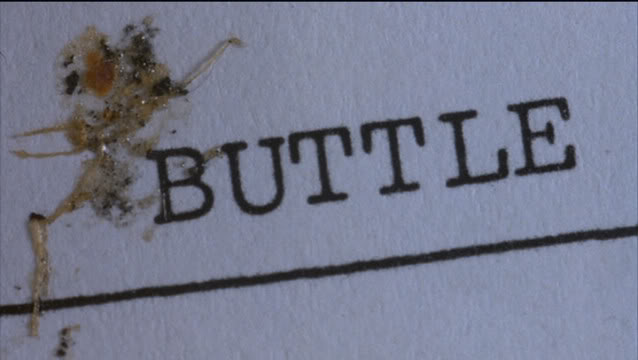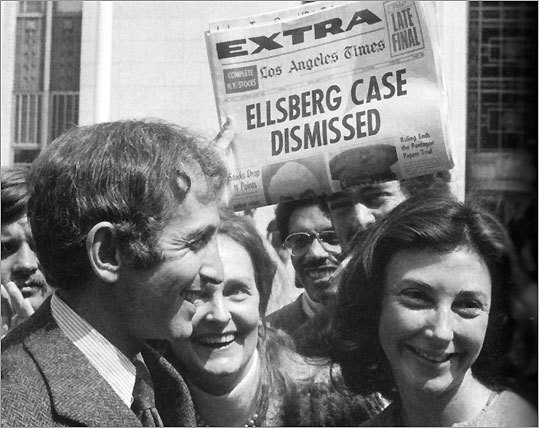

“‘Trump’s presidential run is no longer being treated as serious by the easily distracted and resolutely frivolous political press that covered it so thoroughly just a few short weeks ago. While it was always an unamusing joke…we had what felt like a lifetime of New Hampshire trip coverage and Piers Morgan interviews and ‘President Trump? It might be more likely than you think!’“
With last month’s embarrassing Trump boomlet seemingly run its course in the Village, Salon‘s Alex Pareene comes to bury, not praise, the Donald. “[T]ransparent idiocy didn’t cause the press to take Trump less seriously, but it did lead people to gradually grow to hate Trump, which made his ratings suffer, and the exposure of the artifice of the Trump persona was decidedly damaging to his ‘brand.’ Once your ‘brand’ has been damaged, say goodbye to credulous political press coverage!“
To be honest, I couldn’t care less about Trump, and mostly avoided all of his Birther shenanigans as they were unfolding two weeks ago for the same reason I try to avoid any political coverage — from right or left — of the “You won’t believe what Sarah Palin just posted on Facebook!” variety. It’s lazy, it’s boring, and it’s actively pernicious given all the real problems we face right now. (But at the very least, both Trump and Palin are noteworthy indicators of how far the GOP done fell.)
I’m only posting on this now to point out that the Trump boomlet was by no means a one-time-thing. When the President of the United States actually had to come on TV two weeks ago to prove he was an American citizen, there was much pearl-clutching by the Village press about what a travesty this had all become. “What a sad day in American political history,” lamented MSNBC’s Chuck Todd. Meanwhile, the Washington Post opined that the release “says something embarrassing — actually, make that disturbing — about the state of American politics” — soon after that newspaper of record invited Trump to the White House Correspondent’s Dinner. (An evening, by the way, that’s as good as reflection as any of how desiccated and domesticated today’s establishment press has become.)
For his part, ABC’s Jake Tapper — a fellow who, let’s remember, got his big break as a hard-hitting journalist by kissing-and-telling on Monica Lewinsky back in the day — tried to defend the press by pointing to a Pew study which found that the deficit debate was actually the most-covered news story of the week. The problem with this line of argument is that conducting lousy journalism in one arena does not absolve you of conducting lousy journalism in another. And in fact, Village criers have been just as incompetent and/or duplicitous on the deficit.
For months, as you all know, the Serious People in the media have been banging the drum of the deficit witchhunt even though, from an economic perspective, austerity at this hour makes about as much sense as Birtherism. And, in the past few weeks, they have doubled down on this idiocy by trying to elevate the most recent flavor of the month, Wisconsin Congressman Paul Ryan, as a Serious Man, come to tell us hard truths about the need for sacrifice.
In fact, Congressman Ryan is scarcely any less of a huckster than the Donald. This is a guy who laments the intrusions of the welfare state at every turn, but only made it to college thanks to Social Security benefits received upon the passing of his father. (To be fair: Ryan is only emulating his hero with this sort of hypocrisy.) This is also a guy who, when confronted with the Clinton budget surpluses of a decade ago, then lamented that the debt was too small.
And this is a guy whose budget proposal — which he was quick to deem not a budget, but a cause — is basically the same vile, stale concoction of malice and magical thinking that the right has been peddling for decades. It uses made-up numbers to argue that privatizing Medicare (and leaving seniors with the bills), slashing the social safety net, and lowering taxes on the rich will somehow end deficits and save America. (Short answer: It won’t.)
By any reasonable standard, the Ryan budget should have been laughed out of the room as soon as it dropped. But, no, the press needed A Serious Man™ on the right for its lazy he-said, she-said approach to any political story. And, so Ryan got the Trump treatment and the rest is history. Ostensibly liberal pundits fell over themselves praising Ryan’s budget. In response, the president eventually drew progressive kudos for pitching his own deficit reduction plan. (More on that in a sec.) With both sides established, the press can now continue to happily indulge in the usual medley of content-free, he-said, she-said inanities that, to them, constitutes political journalism. And everyone in Washington can continue to ignore the fact that, actually, more spending, not cutting the deficit, is what is needed to fix the economy right now. Win-win!
Regarding President Obama’s deficit proposals, he delivered an eloquent speech on the subject last month, to be sure — one of his best as president. But, even if we hadn’t already been burned far too many times by his rhetoric not matching up to his policies, it’s hard for me to take his remarks as some great moment of the left just because he finally articulated what should be pretty basic principles of American government. Particularly when you consider that the Obama plan is, of course, center-right-leaning, and yet it has nevertheless become the left pole in an exceedingly narrow economic debate.
(By the way, if you’re really worried about the long-term deficit, the answer isn’t rocket science. Try raising taxes on the rich. Or passing real health care cost controls. Or going where the money’s at. Or growing the economy and putting people back to work. Or, y’know, doing nothing — that would work too.)
In sum, the Trump boomlet of last month was not the exception. It was a clear and distilled expression of the rule, a sideshow to a sideshow. And because the Village press is so terrible, our entire politics is distorted — We are living out the consequences of this disaster yet again in the deficit debate. Only the sheer amount of money flooding the system right now is a bigger political problem than the broken state of the newsmedia.








